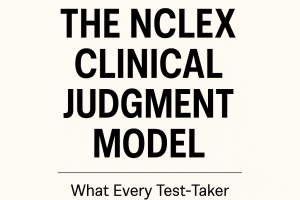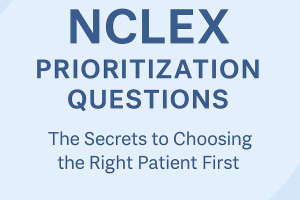FAMILY PLANNING AND CONTRACEPTIVE METHODS: NURSING ROLE AND PATIENT EDUCATION

Introduction:
Family planning is a critical aspect of healthcare that empowers individuals and couples to make informed decisions about when to have children and how many to have. The goal is to ensure the health and well-being of families while promoting reproductive autonomy. Nurses play a pivotal role in family planning by providing education, addressing patient concerns, and guiding individuals toward the most suitable contraceptive methods. This blog post explores various contraceptive options, the nursing role in family planning, and key strategies for effective patient education.
1. Understanding Family Planning and Its Importance
Family planning involves more than preventing pregnancy. It contributes to better maternal and child health, reduces unintended pregnancies, and helps manage population growth. Effective family planning can lead to:
• Improved maternal health by allowing sufficient time between pregnancies.
• Enhanced child health by ensuring that pregnancies are planned and adequately spaced.
• Economic benefits by enabling families to allocate resources more effectively.
For patients, understanding family planning options fosters autonomy, enabling them to make decisions that align with their values, lifestyle, and health needs.
2. Types of Contraceptive Methods
Contraceptive methods can be broadly categorized into hormonal, barrier, permanent, natural, and emergency options. Nurses must understand these methods to provide accurate and personalized recommendations:
• Hormonal Methods: Include birth control pills, contraceptive patches, vaginal rings, injectable contraceptives, and intrauterine devices (IUDs). These methods regulate or suppress ovulation.
• Barrier Methods: Include male and female condoms, diaphragms, and cervical caps. These prevent sperm from reaching the egg.
• Permanent Methods: Include sterilization procedures like tubal ligation and vasectomy. These are irreversible options for individuals or couples who do not wish to have more children.
• Natural Methods: Include fertility awareness methods (FAMs) and withdrawal. These require close monitoring of the menstrual cycle and ovulation patterns.
• Emergency Contraception: Includes pills like levonorgestrel or copper IUDs, which prevent pregnancy after unprotected intercourse.
Nurses should tailor contraceptive discussions to consider factors like the patient’s health status, lifestyle, reproductive goals, and cultural or religious beliefs.
3. The Nursing Role in Family Planning
Nurses are often the first point of contact for individuals seeking family planning services. Their role involves:
• Assessment: Collecting a thorough medical and reproductive history to determine the patient’s needs and identifying any contraindications for specific methods.
• Education: Providing accurate, nonjudgmental information about all contraceptive options, including benefits, risks, and side effects. This helps patients make informed choices.
• Advocacy: Supporting patients’ autonomy in decision-making and addressing barriers such as misinformation, stigma, or access to resources.
• Administration: Offering and administering contraceptives, including injections or implants, and assisting with procedures like IUD insertion.
• Follow-Up: Monitoring patients for side effects, ensuring satisfaction with their chosen method, and providing support if they wish to switch methods.
4. Strategies for Effective Patient Education
Patient education is a cornerstone of successful family planning. Nurses should focus on:
• Using Plain Language: Avoid medical jargon and provide clear explanations to ensure patients understand their options.
• Encouraging Questions: Create a comfortable environment where patients feel empowered to ask questions or voice concerns.
• Visual Aids: Use charts or diagrams to explain contraceptive methods, particularly for patients with low health literacy.
• Personalization: Tailor information to the patient’s unique situation, taking into account cultural, religious, and personal preferences.
• Providing Written Materials: Offer brochures or handouts for patients to review at home, which reinforces the information shared during the appointment.
5. Addressing Common Concerns
Patients often have concerns about contraceptives, ranging from side effects to myths about infertility or hormonal impact. Nurses should be prepared to:
• Correct misconceptions, such as myths that birth control leads to long-term infertility.
• Reassure patients about the safety and efficacy of modern contraceptive methods, backed by evidence-based research.
• Discuss alternative options if a patient has adverse reactions to their chosen method.
6. Overcoming Barriers to Access
For some patients, family planning services may be challenging to access due to socioeconomic or geographic factors. Nurses can assist by:
• Connecting patients with local or government-sponsored family planning programs.
• Advocating for policies that improve access to affordable contraceptives.
• Educating patients on free or low-cost clinics in their area.
Conclusion:
Family planning and contraceptive counseling are integral components of nursing practice. By providing compassionate, informed, and patient-centered care, nurses can empower individuals to make choices that align with their reproductive goals and overall health. A collaborative approach, rooted in education and advocacy, ensures that family planning services are accessible and effective for all patients.
Sample NCLEX Questions:
1. A patient is considering a contraceptive method but has a history of deep vein thrombosis (DVT). Which contraceptive method is most appropriate for this patient?
a. Combined oral contraceptive pills
b. Copper intrauterine device (IUD)
c. Contraceptive patch
d. Vaginal ring
Answer: b. A copper intrauterine device (IUD) is a safe option for patients with a history of DVT, as it does not contain hormones that may increase the risk of clotting.
2. A nurse is teaching a patient about barrier methods of contraception. Which of the following methods should the nurse include in the teaching?
a. Injectable contraceptive
b. Diaphragm
c. Vaginal ring
d. Implantable rod
Answer: b. A diaphragm is a barrier method of contraception that prevents sperm from entering the uterus.
3. During a family planning consultation, a patient expresses concern about forgetting to take a daily pill. Which contraceptive method is best suited for this patient?
a. Fertility awareness method
b. Injectable contraceptive
c. Condoms
d. Combined oral contraceptives
Answer: b. Injectable contraceptives are administered every three months, making them an excellent option for patients who may struggle with daily adherence






